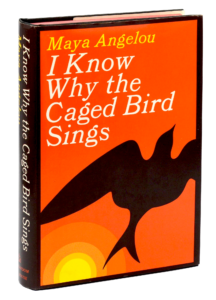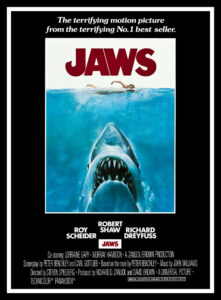
Chandra Harris-McCray, New Chair
An award-winning chief strategist and architect of marketing and communications blueprints across multimedia, Chandra Harris-McCray has been lifting the voices of those often unseen and unheard since she was a little girl reading Chicago newspapers daily to her father. She joined the University of Illinois Chicago in 2021 as vice chancellor for strategic marketing and communications. Her journalistic roots serve as the foundation for more than 16 years of experience in inaugural and progressive marketing and communications leadership roles at the University of Tennessee System and Foundation and the University of Colorado Boulder.
Her leadership is connected to billion-dollar-plus campaigns optimized by multichannel constituent-focused journeys that are rooted in systems thinking and ingenious collaborative partnerships. Her passion for the power of storytelling, social justice, leadership, and creating legacy is rooted in her doctoral degree, which is focused on race, gender, cultural studies, and philanthropy in higher education administration and leadership. She also holds a master’s degree in marketing and communications from UT. Even in the Windy City, she’s a tried-and-true Vol for Life.
What motivates you to serve on the board of the John C. Hodges Society?
My motivation, love, and passion for Hodges Library are birthed from me reading daily to my father growing up as a child in an often-deemed “less-than” neighborhood in Chicago. What seemed like a burdensome chore became a practice that bred an even deeper learning and curiosity within me. The sheer reverence for words—and the books that held them—anchored my very being when I eventually learned that my father was illiterate. I was his access to the world, and every word I read served as a bridge for me to walk on, over, and through. My bridges include being a twice alumna of the University of Tennessee, Knoxville, and my master’s and doctoral degrees were made possible by books, datasets, digital archives, journals, microforms, periodicals—and let’s not forget the lovely on-campus book delivery service and the graduate carrels of Hodges Library. A waymaker, a life giver—that’s Hodges Library.
While serving on the board, what have you found most interesting or surprising about the libraries?
The incredible access the library gives to students and the community around it. It is continually deepening this access in extraordinary ways, from the Beauford Delaney Collection and the Clarence Brown Film Festival to the UT Press.
Do you have a special memory of using the libraries at UT, or any library?
Hodges Library and all its resources became my BFF during my PhD dissertation. It always listened and led me to exactly what I needed, no matter how early or late. And even when it wasn’t on the shelf or immediately available in the digital archives, it still led me to the source through the librarians to the massively linked network to millions of other libraries, systems, and organizations. So grateful for the library and my dissertation chair, Professor J. Patrick Biddix.
Do you have a piece of library advice you’d like to pass on to a student?
As much as it is a historical vessel of knowledge, the library is an exquisite embodiment of living. So sit still in it, revel in the awe of the visual exhibits and archives, connect to it through the community it supports beyond campus, and always pick up an actual book and use all of your senses to touch, smell, and read the goodness of what’s in between the bounded jacket.
What’s the best book you’ve ever read?
Because there are far too many bests to name, the books that validated me, my story and those of my ancestors leave the greatest imprint still and kindled my voracious love of reading. Those are the classics that I always come back to and re-read over and over: I Know Why the Caged Bird Sings by Maya Angelou; To Kill a Mockingbird by Harper Lee; Native Son by Richard Wright; The Color Purple by Alice Walker; and anything by James Baldwin or Toni Morrison.
Do you have hobbies unrelated to libraries or reading?
Likely connected to my unending desire to learn, grow, and imagine. . . . I enjoy making and collecting art of all kinds and bird watching.
What’s the best thing in your refrigerator right now?
It’s not food, but rather the intentional organization of storage containers and such that bring me sheer delight upon opening the refrigerator.

Paul James, Former Chair
I grew up in the UK before moving to the United States in 1996. I’ve long worked in the nonprofit sector, first with the University of Derby back home then with CARE-USA in Atlanta and New York City, before moving to Knoxville about 20 years ago. I worked at Ijams Nature Center for 16 years, including a dozen years as executive director. For the past six years I have been the director of publishing and development for the Knoxville History Project, which has a mission to research, preserve, and promote the history and culture of the city. I live in the Rocky Hill area with my wife, Meredith, and my daughter, Isabel, who is studying at Montana State University.
What motivates you to serve on the board of the John C. Hodges Society?
About 12 years ago, after writing a book on the Ijams family, I helped the family find a home for their historical photographs at Hodges Library. I’ve also done research at Hodges on the early days of the Great Smoky Mountains National Park and appreciate its quality collections. The staff are always professional, knowledgeable, and happy to assist. UT Libraries is an amazing cultural resource—it’s not just for UT students—including its voluminous archive that is housed in the distinctive ziggurat-styled building on campus. And like a stepped temple or pyramid, it is filled with so many treasures. The vast digital collections online can be enjoyed by anyone, and I use them frequently in my work with the Knoxville History Project. I serve on the board to help promote UT Libraries in the wider community.
While serving on the board, what have you found most interesting or surprising about the libraries?
The number of visitors who walk through the doors of Hodges Library every year is truly remarkable—an estimated 1.3 million—making the library the hive of the campus. The technology and resources available to students there make my own library experiences when I was at college seem like the Dark Ages.
Do you have a special memory of using the libraries at UT, or any library?
When I worked for CARE-USA in New York City in the 1990s, I occasionally went to the New York Public Library on Fifth Avenue to perform research. Step into the vast reading room with the desk lamps, and it’s just like you may have seen in films. It’s a monumental building, plus the two lion sculptures outside the entrance were made from East Tennessee marble—a nice home connection.
Do you have a piece of library advice you’d like to pass on to a student?
Take the time to explore every floor of Hodges Library. There is always something interesting to see on display in Special Collections and the adjoining exhibit area. Plus, on every floor, there are wonderful photographs, including my favorite collection of Jim Thompson and Dutch Roth photos up on the sixth floor of the early days of the Smokies, before it became a national park.
What’s the best book you’ve ever read?
For sheer enjoyment, it is probably Treasure Island (1883) by Robert Louis Stevenson. It starts brilliantly in an old inn by an English cove with young Jim Hawkins and a colorful and crusty sea captain and his talk of buried treasure, one-legged sailors, and chants of “Fifteen men on a dead man’s chest” and “Yo-ho-ho and a bottle of rum!” Classic stuff. After the captain receives the “black spot” from one of his old crewmates and keels over, the inn boy Jim soon finds his treasure map and before long is on the high seas in a swashbuckling adventure full of memorable characters—not least Long John Silver and his parrot—that never lets up. Some of the nautical references in the book can be a bit puzzling, but it’s a magical read.
What’s the best movie you’ve ever seen?
I never tire of Jaws (1975). It’s a gripping story, well acted and well paced, and the shark is still chilling. So many memorable scenes, including the now-famous USS Indianapolis speech by grizzled seaman Quint. Curiously, that real-life story has a local connection in that several men from Knoxville perished on the vessel, which was torpedoed at the end of WWII, including local dentist and painter Earl O. Henry, who was also a local birdwatcher with Harry Ijams. You can see Henry’s painting of a red-tailed hawk among the Knoxville History Project’s Downtown Art Wrap series on Main Street. Many of the crew who didn’t go down immediately with the Indianapolis were preyed upon by sharks on the open sea. It was a terrible tragedy, and that short yet poignant scene grounds the entire movie. Jaws isalso one of those rare instances where the film is far better than Peter Benchley’s original best-seller. Runner-up: the mind-bending Interstellar (2013).
Do you have hobbies unrelated to libraries or reading?
I still love buying vinyl records. As a teenager I had a reputation for always coming home with a bagful of records. I didn’t go in record shops to “smell the vinyl,” as Morrissey famously quipped. But there must have been at least 10 shops in town back then that sold vinyl, and I would traipse round them all to find the best prices. To me, playing records is an endlessly satisfying experience. Plus memorable LP covers, like David Bowie’s Diamond Dogs, can be artworks themselves. I also enjoy reading, hiking, and visiting art and natural history museums, wherever they are.
What’s the best thing in your refrigerator right now?
The bread rolls or baps that I bake myself. Right out of the oven, particularly, they feel and taste quite like the ones I can get back home in Derby, England, from an amazing local bakery called Birds Bakery.



